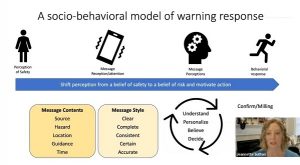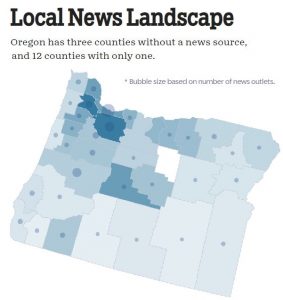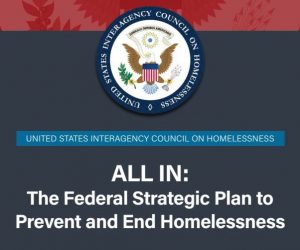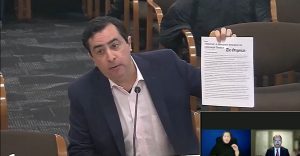Supreme Court opinion opens door for Juliana youth
4 min read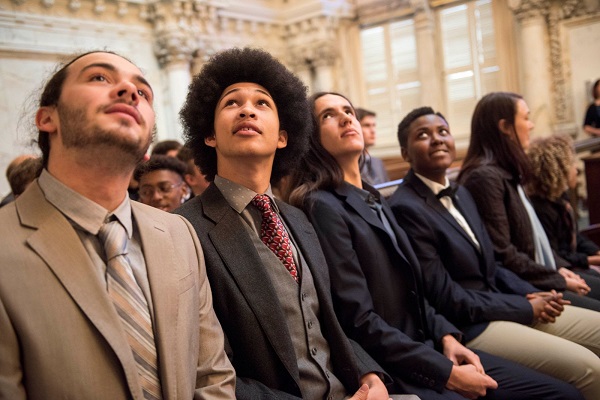
from Our Children’s Trust
U.S. District Court Judge Ann Aiken ruled that the youth plaintiffs in the landmark children’s climate case against the United States government, Juliana v. United States, can amend their complaint and have their evidence heard in open court.
The ruling comes less than two weeks before the first-ever constitutional climate trial in U.S. history is scheduled to begin in Montana.
Judge Aiken wrote in her decision, “It is a foundational doctrine that when government conduct catastrophically harms American citizens, the judiciary is constitutionally required to perform its independent role and determine whether the challenged conduct, not exclusively committed to any branch by the Constitution, is unconstitutional.”
The ruling puts the youth plaintiffs back on track for a trial that had been pulled out from under them by the Chief Justice of the U.S. Supreme Court days before it was to begin in October of 2018.
Plaintiffs intend to seek a prompt trial date so that they and their experts can finally present their evidence of their government’s active infringement of their constitutional rights.
The 21 youth plaintiffs, who have faced incessant and unprecedented efforts by the U.S. Department of Justice (DOJ) to delay or dismiss their case, will finally be able to move forward on the question of whether the federal government’s fossil fuel-based energy system, and resulting climate destabilization, is unconstitutional.
“Today’s ruling from Judge Aiken is our legal system working the way it should: a fair and well-reasoned application of the law in a vitally important constitutional case where children’s lives are at stake,” stated Julia Olson, lead counsel for the youth plaintiffs.
“These young people have a right to access their courts and, after several long years, finally have their evidence of climate harm caused by their own government–and how to stop it–heard in open court. Attorney General Garland should treat this like the urgent constitutional case that it is by litigating the case on its merits and presenting their arguments in the light of day at trial, rather than once again seeking to push this case into the dark corners of the shadow docket.”
Judge Aiken’s decision relies heavily on a Supreme Court opinion authored by Justice Thomas, Uzuegbunam v. Preczewski, where the Court said that even partial relief that acts as a declaration of a constitutional violation satisfies the test for standing and opens the courthouse doors for youth.
Nathan Baring, Juliana youth plaintiff, stated, “It has been nearly eight years since Juliana was filed in federal court and it has now been eight years of growing up, from early high school to post-graduate school, under the emotional weight of a climate system that will be handed to our generation in disrepair. Our policymakers, legal scholars, and, most importantly, our judiciary, must now heed Judge Aiken’s words that ‘when government conduct catastrophically harms American citizens, the judiciary is constitutionally required to perform its independent role.’
“In the moment when every new UN IPCC declaration is a clarion call, when every year racks up unprecedented global weather disasters, when Congress is seemingly determined to further drive the US and world past points of ‘no return,’ it is the responsibility of our court system to be the constitutional bulwark in halting ‘the nation’s willful destruction’ (quoting Judge Josephine L. Staton’s dissent from 2020).”
“Given the straightforward nature of Judge Aiken’s opinion it’s clear the case is ready to proceed to trial. Our plaintiffs are ready for justice to be done in the courtroom.” stated Phil Gregory, co-counsel for the youth plaintiffs.
Earlier this year, the court also denied 18 Republican Attorneys’ General request to intervene as defendants in the case, but kept the door open for them to refile their motion .
In April 2022, an independent feature-length documentary about the case, “YOUTH v GOV,” premiered on Netflix and is now streaming worldwide.
In addition to Juliana v. United States, Our Children’s Trust also represents and/or supports young people in global and U.S. state climate litigation, including Layla H. v. Commonwealth of Virginia, Natalie R. v. State of Utah, Navahine F. v. Hawaiʻi Department of Transportation, and Held v. State of Montana.
The Montana case is set to become the first-ever constitutional climate trial, and first-ever children’s climate trial in U.S. history, with trial proceedings scheduled to begin June 12, 2023.
Our Children’s Trust is the world’s only nonprofit public interest law firm that exclusively provides strategic, campaign-based legal services to youth from diverse backgrounds to secure their legal rights to a safe climate. We work to protect the Earth’s climate system for present and future generations by representing young people in global legal efforts to secure their binding and enforceable legal rights to a healthy atmosphere and safe climate, based on the best available science.

